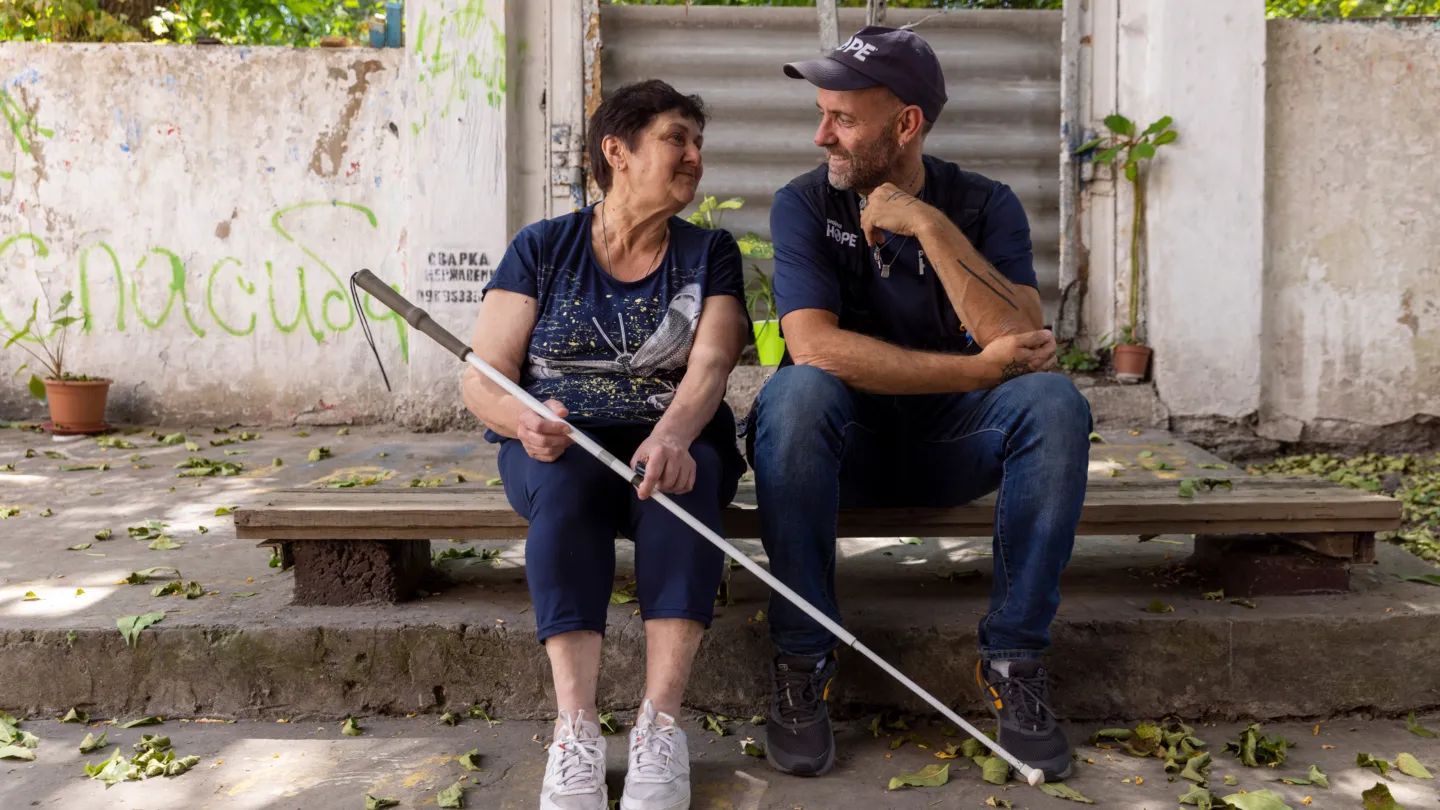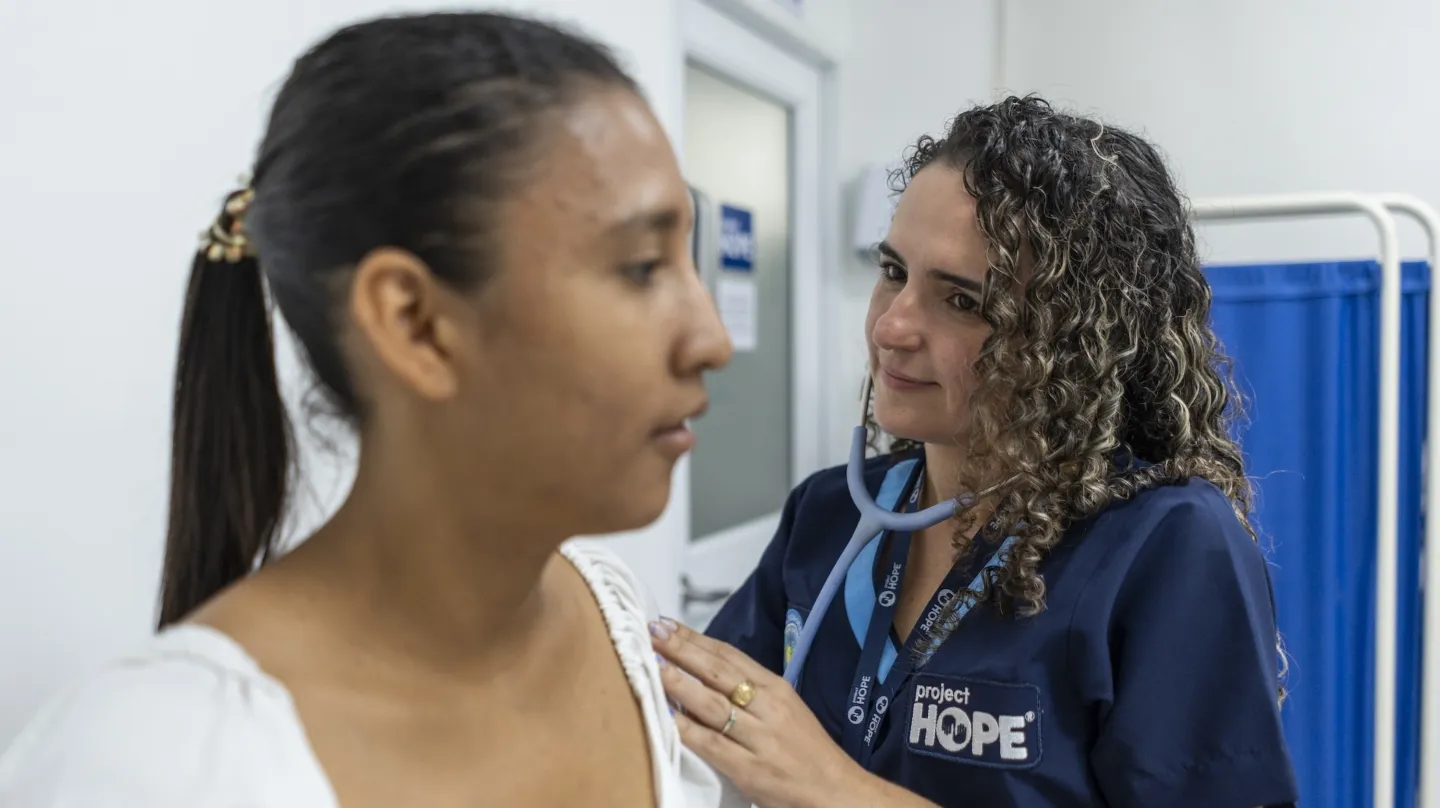When Mental Health Becomes Essential to Survive
With an initial ceasefire agreement in place, the need for widespread mental health and psychosocial support in Gaza is paramount
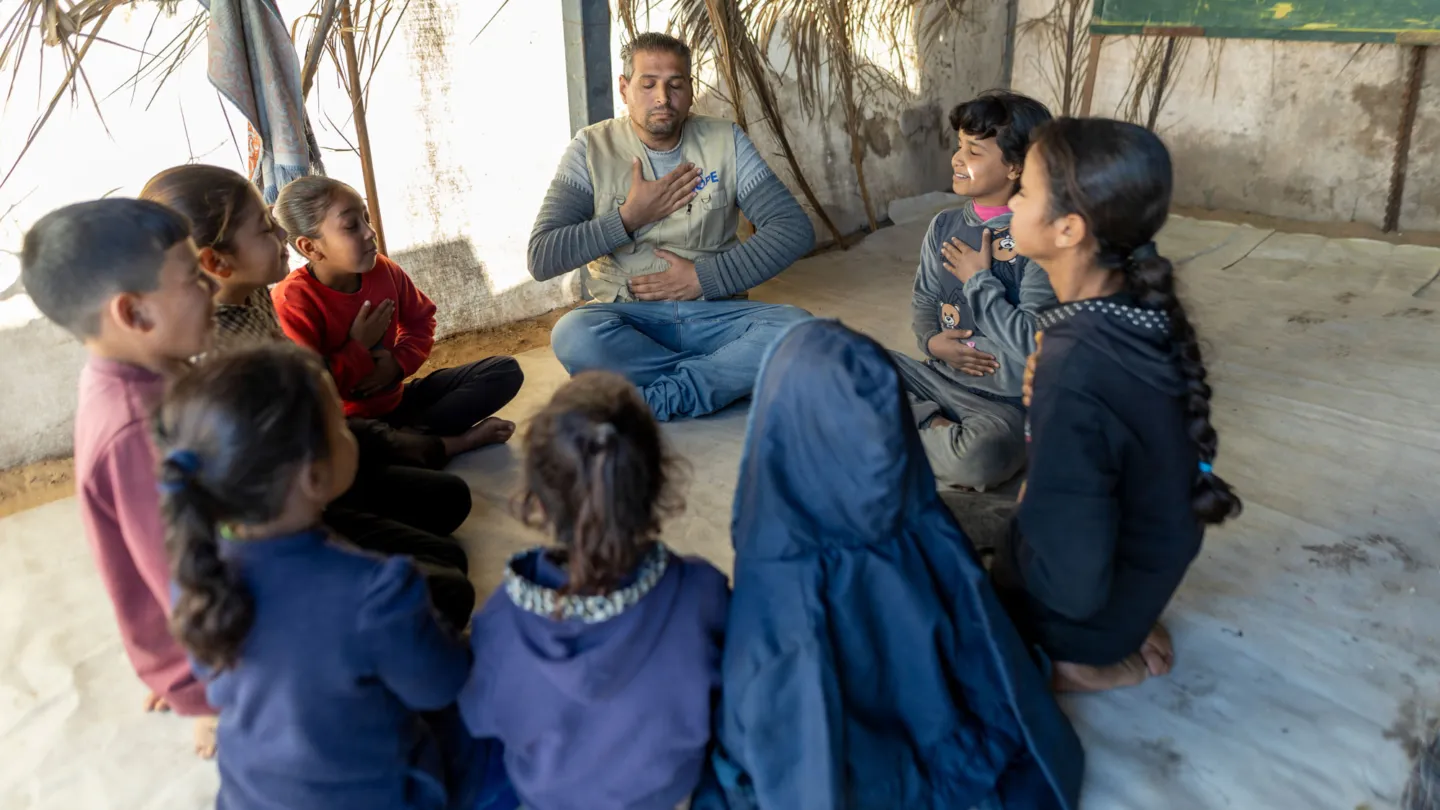
Jiddha was still asleep, only minutes away from waking up for what should have been a regular school day, when a deafening explosion shattered the morning silence. Startled and terrified, he woke up crying, running through the dark to find his parents. That day, his family took only what they could carry as they fled in fear, desperate to find safety.
It has been just over two years since that morning. Jiddha and his family, like countless others, are still struggling each day to survive in Gaza.
The war in Gaza began suddenly and changed lives in an instant. Families were forced to leave everything behind. Hospitals and schools that once provided care and education now stand in ruins. The destruction of essential infrastructure has made daily life unbearable. With limited access to food, water, and medical care, millions remain in urgent need of assistance.
Beyond the physical wounds of ruins and rubble lies another kind of suffering — quieter, invisible, and just as devastating: the one that affects the human mind.
A Crisis Within a Crisis
Research has long shown that war leaves deep psychological scars. The World Health Organization (WHO) estimates that one in five people who have lived through conflict experience depression, anxiety, or post-traumatic stress disorder. In Gaza, however, the situation is far worse.
After two years of unrelenting violence, destruction, and displacement, mental health needs in Gaza have reached unprecedented levels. A recent study found that 99.5% of internally displaced people —now almost 90% of the population in Gaza — are experiencing depression.
The mental health landscape in Gaza is extremely worrying. Ensuring access to mental health care and psychosocial support is not only critical — it is lifesaving. Project HOPE is responding to this humanitarian crisis by implementing effective strategies that provide comprehensive care, uphold human dignity, restore a sense of safety, and build resilience.
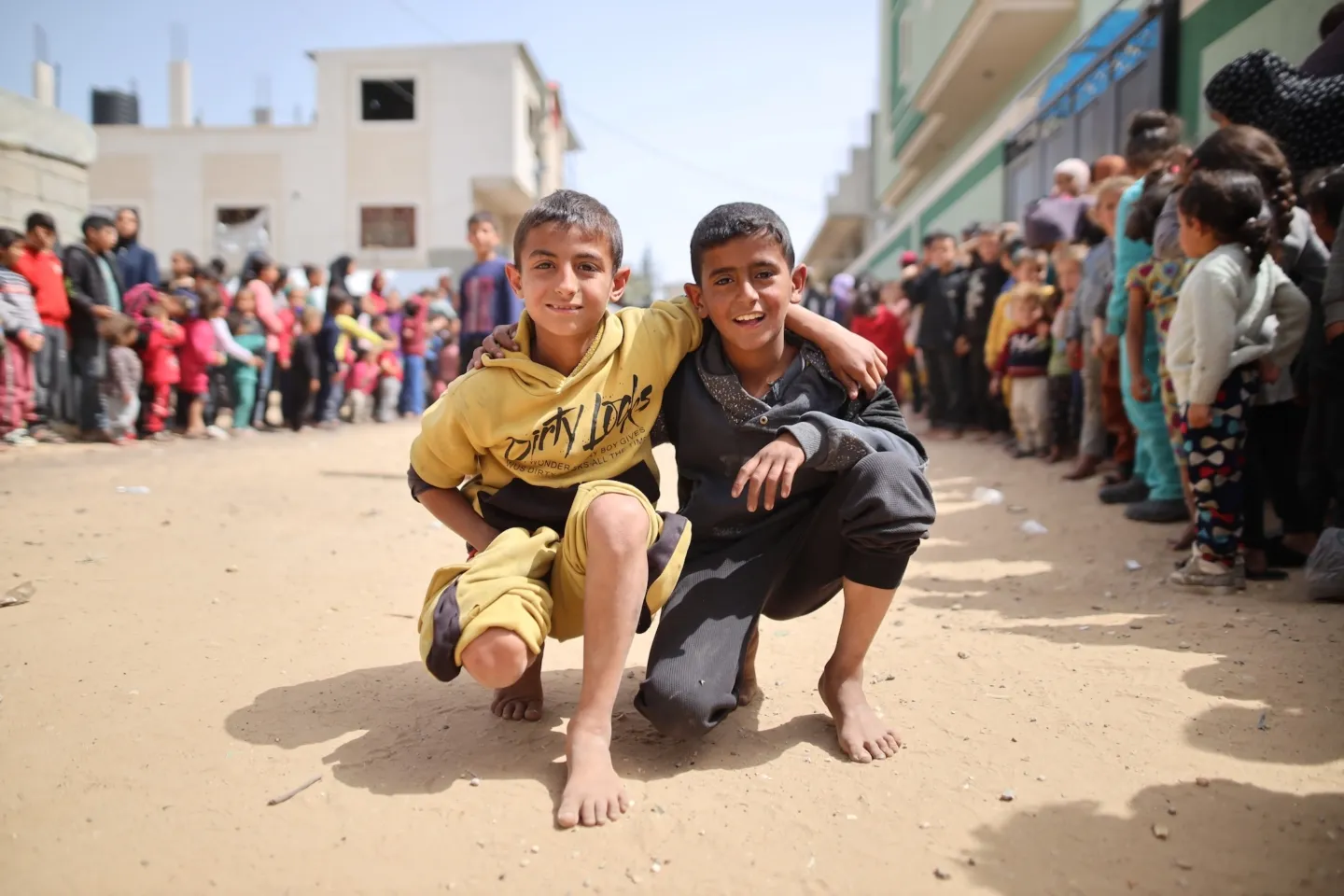
Coordinated Efforts for a Humanitarian Response
Mental health is determined by multiple factors, including access to food, water, shelter, and safety. Recognizing the deep interconnection between physical and mental well-being, Project HOPE works alongside local and international partners to deliver an integrated, multi-sectoral response that includes health; water, sanitation, and hygiene (WASH); protection; nutrition; and mental health and psychosocial support (MHPSS).
Collaboration with the MHPSS Technical Working Group has been essential to identify gaps and prioritize interventions that are both evidence-based and adaptable. Given the immense shortage of mental health professionals, quick and scalable psychological interventions have become critical to reaching those in need.
Gaza’s health care system, already fragile before the war, has been shattered. According to WHO, at least 94% of hospitals have been damaged or destroyed, and many are no longer functioning.
In a landscape where hospitals lie in ruins, small health clinics have become lifelines. Project HOPE has established five clinics in the most affected areas, serving displaced families, pregnant women, and injured civilians. These clinics are more than places for medical treatment; they are spaces of hope, where people can feel seen and heard.
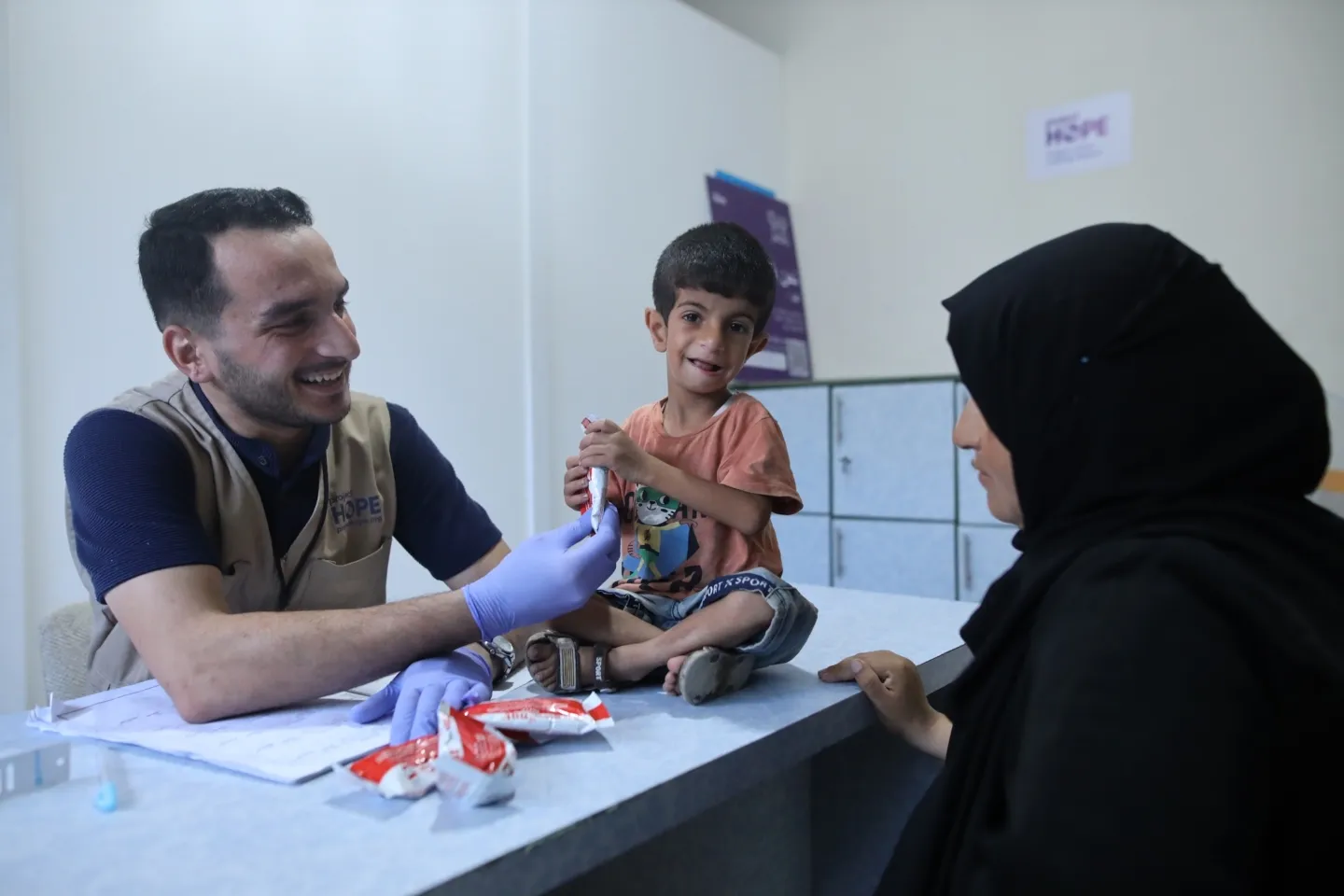
Integrating mental health services into clinics has been essential to providing support to affected populations. Teams of psychologists and social workers work side-by-side to provide MHPSS to people coming in for health and nutrition services, including children and pregnant women. Psychologists offer individual and group sessions, helping people understand that the sadness, fear, and anger they feel are normal reactions to extraordinary trauma. They also equip them with strategies for emotional regulation. Those showing signs of severe distress or mental illness receive specialized psychiatric consultations.
Safe Spaces in a World That Feels Unsafe
While mental health consultations are essential, there is still significant stigma around asking for mental support, even when integrated into health services.
To address this, Project HOPE has also established community centers that offer psychosocial and protection activities for children, women, and men. These centers have become safe spaces in a context that feels unsafe everywhere else — places to learn, connect, and heal in community.
Here, children like Jiddha play, draw, and connect with other children. Through art, they express their fears and their dreams presented in images of destroyed houses, but also of trees, families reunited, and skies filled with birds instead of drones. For many, these drawings are a way to process their reality and imagine a hopeful future.
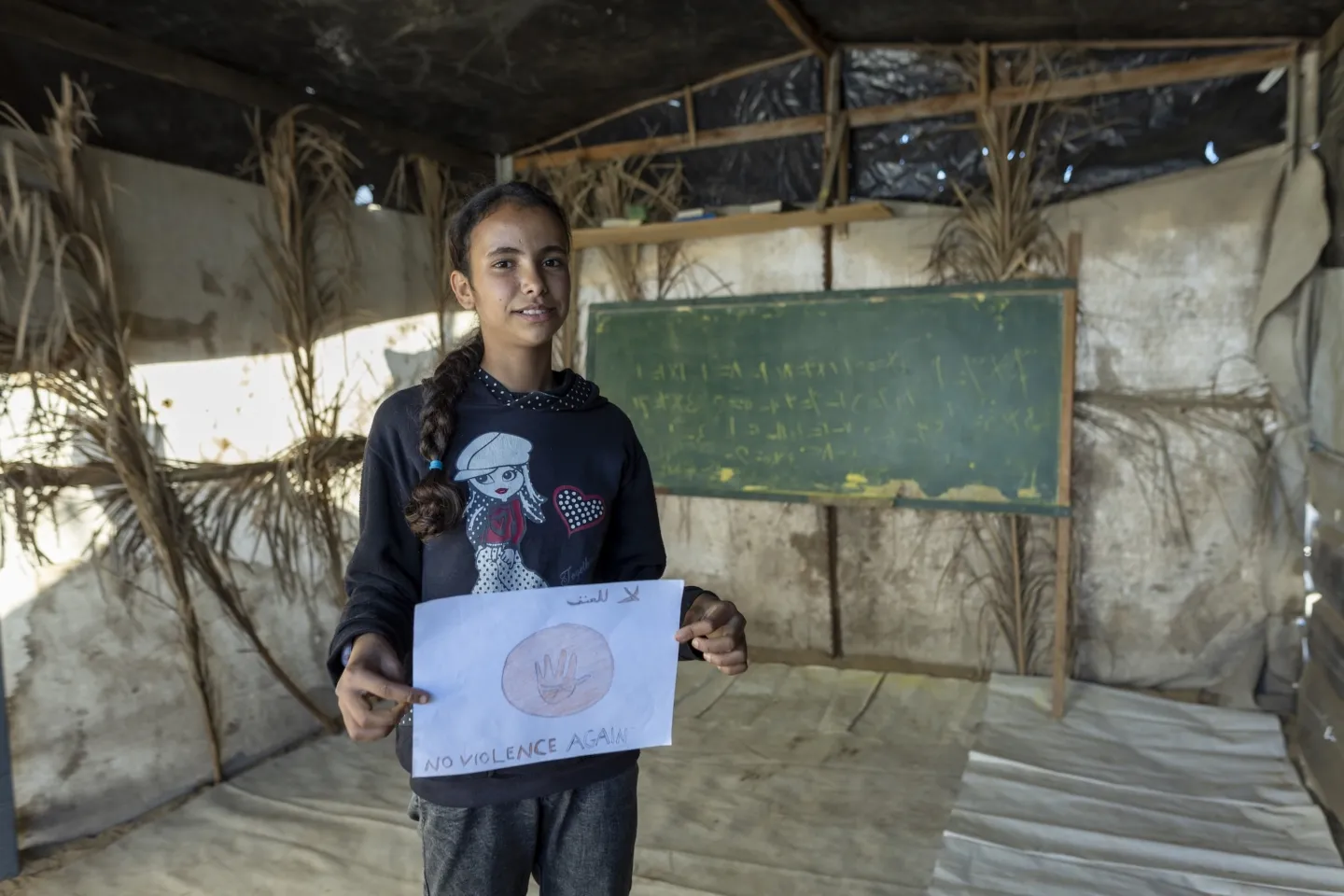
The centers also support survivors of gender-based violence (GBV), many of whom are unable to report incidents or seek critical support due to the inaccessibility of response services. GBV has increased sharply amid displacement and insecurity. Women gather to share experiences, participate in empowerment workshops, and learn coping strategies. Awareness sessions help both men and women understand the impact of violence and the importance of mutual respect.
These community spaces rebuild something essential: the feeling that, even amid chaos, community still exists, and there is a place they belong to.
Reaching Those Who Cannot Reach Help
For many people, especially those in remote areas, reaching a clinic is near impossible. To reach them, Project HOPE’s multi-sectoral mobile teams reach people where they are: shelters, streets, and temporary camps. These teams provide first-line emotional support interventions through psychological first aid and group discussions about stress, parenting during emergencies, and coping with loss.
Sometimes these conversations happen in open fields, under damaged roofs, or beside tents. What matters most is that people feel heard and supported, are referred to services, and are reminded that their pain is shared and that healing is possible.
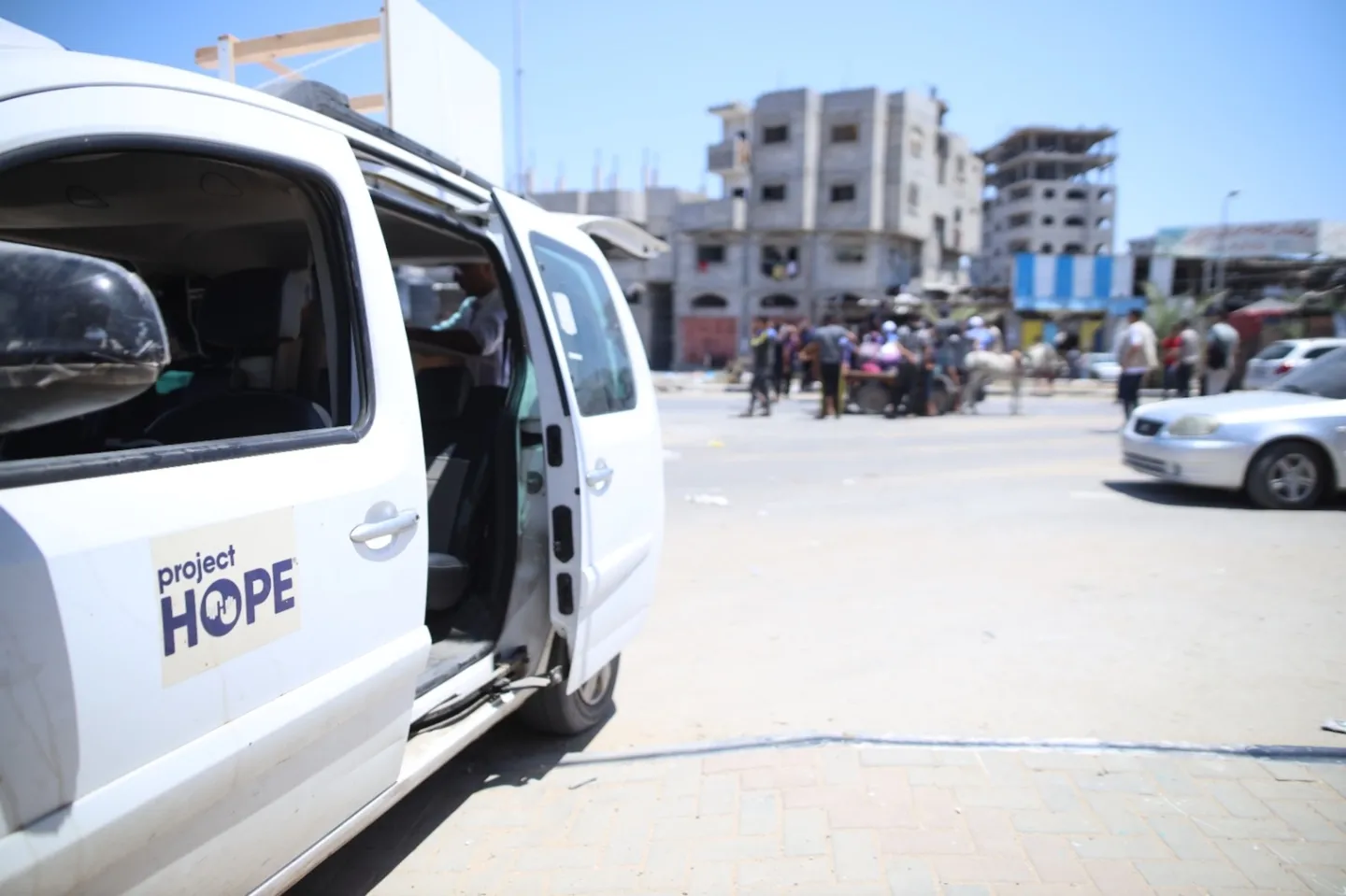
Building Resilience of Frontline Workers
The work of providing mental health support in Gaza is both rewarding and emotionally taxing. Most of the psychologists, doctors, and social workers are themselves survivors. They live in the same conditions, face the same losses, and carry the same fears. At the end of each day, they return to overcrowded shelters, carrying with them the weight of the stories they’ve heard.
To protect their own well-being, Project HOPE facilitates peer-support sessions and clinical supervision. These gatherings allow team members to share their experiences, learn from one another, and practice self-care. Many say that this shared space has become their own form of therapy — a place where they can exhale, if only for a moment, and remind each other why they continue this work.
Hope Persists Amid Uncertainty
In just two years, Project HOPE’s MHPSS teams have reached over 16,000 people directly and more than 100,000 people through the broader humanitarian response. Behind each statistic is a life touched: a child who smiles again, a mother who begins to sleep, a man who finds the courage to talk about his fear.
The challenges remain vast. Needs continue to grow faster than resources. Infrastructure is still being destroyed, starvation is growing, and safety is never guaranteed. There aren’t enough mental health professionals, and funding for long-term support is uncertain. Still, amid all this, communities are showing resilience that defies imagination. People continue to care for one another, share food, and rebuild routines for their children. Hope, however fragile, refuses to disappear.
When Jiddha woke up to that explosion two years ago, he could not have known how long the fear would last. He could not have imagined that he would still be waiting to go back home and to school. Yet, his drawings show blue skies, families together, and rebuilt houses. Within them lies the seed of recovery and resilience.
That is what mental health work in Gaza is truly about — not just treating trauma, but nurturing the possibility of joy, even in the smallest corners of despair.
As the world looks toward Gaza, we must see beyond the rubble and statistics. We must see the children, parents, grandparents, frontline workers, and caregivers, who continue to hold on to life, to care, and to the dream of peace. Their resilience is a quiet form of resistance, and their healing, when supported with compassion and commitment, is a reminder that even in the darkest times, humanity endures.
Pamela Londoño Salazar is the Global Mental Health Advisor for Project HOPE

